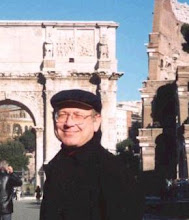Thomas Jefferson solved the problem of economic downturns, and, if we had followed his lead, there would have been no Great Depression and we would not be mired in another one today. Jefferson was a good friend of J. B. Say, the French economist who solved the problem of rising unemployment. Jefferson tried to recruit Say to his beloved University of Virginia and he commissioned the English translation of Say’s A Treatise on Political Economy, which became America’s standard textbook on the subject for the next fifty years. Had we continued its use we would be without the Federal Reserve Bank, Keynesian monetary manipulation, and the costly recessions that they have caused.
At the center of Say’s economics is the insight that money, while serving as a medium of exchange that makes our markets work, also serves as a veil that obscures our vision of how those markets work. Piercing money’s veil of obfuscation, the market appears in its full reality as a magical place where men and women can magnify the value of their labor a hundred-fold by trading what they produce using their comparative advantage for the products of other people with their own specialized advantages.
Man, incapable of lifting himself out of a stone-age existence using his own self-reliance, can trade a few minutes of his own specialized labor for woven cloth, liquid fuel from rocks, and the written record of the greatest thoughts of his species. Trading, the activity of the marketplace, provides food, housing, and intellectual nurture to an individual barely capable of surviving on his own in the harshness that is nature.
But trading is both facilitated and obscured by money. As a commodity valued by men of different appetites, money allows a dairy farmer to trade his wares for the bread of a lactose intolerant baker. However, as it becomes a measure of the value of everything else in an economy, money disguises the fact that the dairy farmer and the baker are essentially both bartering what they produce for the product of another. Looking beyond the efficient medium of money, there is no distinction between consumers and producers, every transaction in the marketplace represents the culmination of an act of production and the initiation of an act of consumption.
Say knew, as did his friend Thomas Jefferson, that only governments can create unemployment and only traders in the marketplace can resolve their own unemployment. We are all traders and we must therefore be willing to trade our specialized services for the specialized services of others. We must offer the wealth that is our own comparative advantage for the magnifying wealth of the marketplace. We must trade for real wealth rather than the unstable veil given to us by a government that once deserved our trust.
Friday, May 8, 2009
Jefferson’s Economic Recovery
Subscribe to:
Post Comments (Atom)





No comments:
Post a Comment